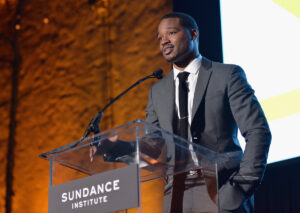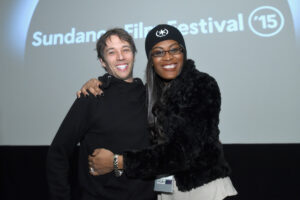Quadrangle
Mike Jones
“Everything has a tragedy. You think your tragedy is the only tragedy? Everyone has one.”
These opening lines of Amy Grappell’s short documentary Quadrangle are spoken by her mother. The lines are elusive, setting the stage for a ripped-from-the-headlines drama.
Even the catalog blurb reads like a 48 Hours episode: a young woman explores the extended foursome her parents had while she was a child—a foursome that not only led her parents to divorce, but to marry their respective foursome partners. Yet Grappell foregoes sensationalism for a subtle, restrained study of love and relationships.
Grappell’s original intent was to use the footage as research for a narrative script. “During the interviews my father dug up the photos he took of the group, and I thought they were an amazing visual representation of the time,” says Grappell. “When I returned home, I watched the interviews and was struck by the way my parents answered the same questions.”
Following that theme, Grappell decided to force a dialogue with her parents by editing the film almost entirely in split screen. Grappell’s mother, Deanna, speaks screen left as her father, Paul, seems to answer from the right screen. Both muse on the same subjects, both speak candidly about their own feelings and the results. Both, in a wonderfully deceptive way, seem to give the other their due—pausing to let the other speak or elaborate—though they seem to not have spoken face-to-face in years.
“The truth is they never could have answered so honestly if they were together,” says Grappell. “So I liked the idea of creating a simulated conversation between them—one that could never have taken place in real life.”







